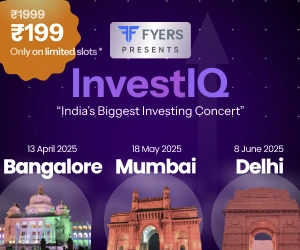Get 50% OFF This Summer!
Garware Marine Industries

No Data Available
Investor Sentiment
Garware Marine Industries Share price and Fundamental Analysis
Key Metrics
Stock Returns
CAGR
Revenue Growth
Net Profit Growth
Operating Profit Growth
Dividend Growth
Stock Returns CAGR
Stock Heatmap

No Stocks
Smart Score

Unlock Smart Score
See Detailed Analysis & Insights


Unlock Insights
See Detailed Analysis & Insights
Technicals
Returns Calculator
If you would have investedResearch Report
No Research Report
Corporate Action
Financials
Key Ratios
ROE
Avg ROE (3 Yrs) : NaN%
ROCE
Avg ROCE (3 Yrs) : NaN%
ROA
Avg ROA (3 Yrs) : NaN%
NPM
Avg NPM (3 Yrs) : NaN%
Dividend History
5 Year FactSheet
Documents

No Data Available
News
Garware Marine Industries Management and History
Company Management


Unlock Management Data
See Detailed Analysis & Insights
Company History
Garware Marine Industries Ltd (GMIL), a Public Limited Company, was incorporated on August 8, 1975 with the name as 'Modern Nets Ltd'. On March 29, 1976, the Company commenced their operations. Thereafter, the name of the Company got changed to Garware Marine Industries Ltd. in December, 1981.
The company is headquartered in Mumbai and their factory is located at Ahmednagar in Maharashtra. It was promoted by Late Padma Bhushan, Shri. B. D. Garware, founder of the Garware Group of Companies. Prior toi this, it was engaged in the manufacture and marketing of Fishing Nets for over 3 decades and is catering to the needs of large number of fishermen throughout the Indian sub-continent. However the manufacturing and marketing activities have ceased to exist, it presently runs a Ship Repair Division.
The Company also assist OEM engineers in carrying out Major day dockings, Shaft removal and renewal, Propeller hub overhaul, Bow thruster, and Stern thruster overhauls. It is one of the few Net Makers in the organized sector. It mainly cater to Fishing Industry situated along the coastline of India. It manufacture Nylon Fishing Nets in various sizes.
During the year 2005-06, the company increased the production capacity of Fish Knitted Fabrics from 256 MT to 384 MT. During the year 2007-08, it installed 3 new net making machines at the Ahmednagar plant. In July 2008, it commissioned all the machines and started commercial production. Further, two new machines were installed and commissioned, which again commenced production in August, 2010.
Garware Marine Industries Share Price
Garware Marine Industries share price reflects investor sentiment toward the company and is impacted by various factors such as financial performance, market trends, and economic conditions. Share price is an indicator which shows the current value of the company's shares at which buyers or sellers can transact.
Garware Marine Industries Market Cap
Market capitalization of Garware Marine Industries indicates the total value of its outstanding shares. Marketcap is calculated by multiplying share price and outstanding shares of the company. It is a helpful metric for assessing the company's size and market Valuation. It also helps investors understand how Garware Marine Industries is valued compared to its competitors.
Garware Marine Industries PE Ratio
Garware Marine Industries PE ratio helps investors understand what is the market value of each stock compared to Garware Marine Industries 's earnings. A PE ratio higher than the average industry PE could indicate an overvaluation of the stock, whereas a lower PE compared to the average industry PE could indicate an undervaluation.
Garware Marine Industries PEG Ratio
The PEG ratio of Garware Marine Industries evaluates its PE ratio in relation to its growth rate. A PEG ratio of 1 indicates a fair value, a PEG ratio of less than 1 indicates undervaluation, and a PEG ratio of more than 1 indicates overvaluation.
Garware Marine Industries ROE (Return on Equity)
Return on Equity (ROE) measures how effectively Garware Marine Industries generates profit from shareholders' equity. A higher ROE of more than 20% indicates better financial performance in terms of profitability.
Garware Marine Industries ROCE (Return on Capital Employed)
Return on Capital Employed (ROCE) evaluates the profitability of Garware Marine Industries in relation to its capital employed. In simple terms, ROCE provides insight to investors as to how well the company is utilizing the capital deployed. A high ROCE of more than 20% shows that the business is making profitable use of its capital.
Garware Marine Industries Total Debt
Total debt of Garware Marine Industries shows how much the company owes to either banks or individual creditors. In simple terms, this is the amount the company has to repay. Total debt can be a very useful metric to show the financial health of the company. Total debt more than equity is considered to be a bad sign.
Garware Marine Industries Debt to Equity Ratio
The Debt-to-Equity (DE) ratio of Garware Marine Industries compares its total debt to shareholders' equity. A higher Debt to Equity ratio could indicate higher financial risk, while a lower ratio suggests that the company is managing its debt efficiently.
Garware Marine Industries CAGR (Compound Annual Growth Rate)
CAGR shows the consistent growth rate of Garware Marine Industries over a specific period, whether it is over a month, a year, or 10 years. It is a key metric to evaluate the company’s long-term growth potential. Main metrics for which CAGR is calculated are net sales, net profit, operating profit, and stock returns.
Garware Marine Industries Technical Analysis
Technical analysis of Garware Marine Industries helps investors get an insight into when they can enter or exit the stock. Key components of Garware Marine Industries Technical Analysis include:
Support Levels (S1, S2, S3)
There are usually multiple support levels, but the main support levels for a stock are S1, S2, S3. Support levels indicate price points where stock might get support from buyers, helping the stock stop falling and rise.
Resistance Levels (R1, R2, R3)
There are usually multiple resistance levels, but the main resistance levels for a stock are R1, R2, R3. Resistance levels represent price points where Garware Marine Industries shares often struggle to rise above due to selling pressure.
Garware Marine Industries Dividends
Dividends refer to the portion of the company’s profits distributed to its shareholders. Dividends are typically paid out in cash and reflect Garware Marine Industries ’s financial health and profitability.
Garware Marine Industries Bonus Shares
Bonus shares are usually given by companies to make the stock more affordable, increase liquidity, boost investor confidence, and more.
Garware Marine Industries Stock Split
Stock split increases the number of its outstanding shares by dividing each existing share into multiple shares. When the company offers a stock split, the face value of the stock reduces in the same proportion as the split ratio.
Garware Marine Industries Financials
The financials of Garware Marine Industries provide a complete view to investors about its net sales, net profit, operating profits, expenses, and overall financial health. Investors can analyze financial data to assess the company’s stability and also understand how the company has been growing financially.
Garware Marine Industries Profit and Loss Statements
The profit and loss statement of Garware Marine Industries highlights its net sales, net profit, total expenditure, and operating profits in the current financial year. This Profit and Loss statement is crucial for evaluating the profitability and financial stability of Garware Marine Industries .
Garware Marine Industries Balance Sheet
The balance sheet presents a snapshot of Garware Marine Industries ’s assets, liabilities, and equity of shareholders, providing insights into the financials of the company.
Garware Marine Industries Cashflow Statements
Cashflow statements track the company's cash inflows and outflows over a period. It is an essential tool for understanding how well the company manages its liquidity and finances.

Download the App


